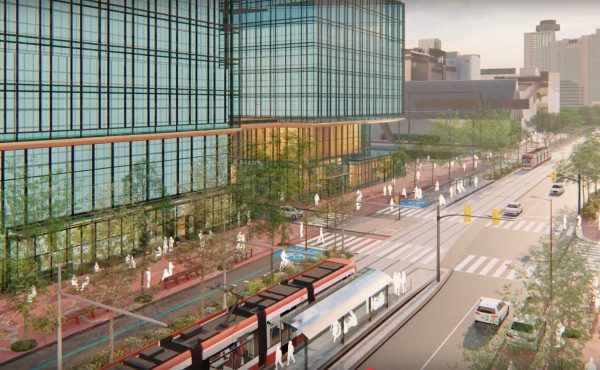
After enduring two mayoral debates last week, it struck me that following this election is a lot like watching Seinfeld re-runs endlessly. The same cast of unlikeable characters, the same rim-shot lines, the same grinding pettiness.
I, for one, can’t wait for a new season to start, even if the only premiere on offer turns out to be a Toronto version of Family Guy.
So a modest proposal: if the next mayor and council can make just one change to really improve local democracy in this town, they should shift the official registration date for candidates – council’s equivalent to dropping the writ – from the first Monday after New Year’s to the first Tuesday following Labour Day.
Et voila: a full-bodied two-month campaign (still lengthy by federal or provincial standards) instead of an amateur version of Wagner’s Ring Cycle.
If the campaign’s mind-numbing tedium doesn’t persuade you, consider the case of some of the zanier policy planks that have emerged in the past two weeks: Rocco Rossi’s highway tunnel, of course, and George Smitherman’s 2% tax break for apartment dwellers.
I needn’t say more about Rossi, but Smitherman’s pledge — which he claims will put $50 a year back into the pockets of apartment dwellers — isn’t serious policy so much as a transparent attempt to throw a bone to a large voting block and, more significantly, the city’s rental housing industry, the real beneficiary. Even if he could figure out how to pay for such a plan, Smitherman has no way of ensuring the tax cut flows through to tenants; that’s why one of the admiring quotes on the press release comes from the head of the landlords’ association.
The point is that these candidates are clearly scraping around for crumbs at the bottom of the municipal cookie jar. Having stumped since January, they have precious little left to announce, but a lot of air time to fill between now and October 25. (And also because neither Smitherman nor Rossi are disciplined campaigners who know how to stay on a simple message.)
Here, then, is the case for a two-month campaign:
1. It will attract candidates who are justifiably put off by the spectre – and cost – of campaigning for the better part of a year. As it stands, mayoral candidates must have the wherewithal to survive a 10-month race, not to mention a sado-masochistic streak.
2. It may actually increase voter turnout, as opposed to what we’re doing now, which is generating vast quantities of voter fatigue. An irritable, exhausted voter is less likely to cast a ballot than an engaged one, no?
3. It will allow the outgoing mayor and council (as well as the media) to focus on their final year in office and the city’s business. As it stands, the marathon represents a huge distraction, and allows stealth interventions from other orders.
4. Most importantly, it will allow the candidates to stick to a core set of issues that can be debated over a finite period. I’d argue that if we had a two month campaign, there would be little incentive for candidates to grab headlines with outrageous promises that have almost no chance of succeeding (thus perpetuating the cycle of voter disenchantment).
So the next time you hear a candidate jawing about governance or electoral reform, ask them if they want to go through all this again. I’m guessing they’d be more than happy to change the channel.





15 comments
I made a similar argument last night and I completely agree. Who needs people stumping for the better part of a year.
I added one condition to this argument, though.
We must move to end the flood of debates. As with a provincial and federal election, debates ought to be a major event rather than the current municipal setup which makes them nothing more than common noise. 2 or 3 official debates at most, televised on all the local stations with a real goddamn host.
Obviously neighbourhood and interest groups can still invite candidates to speak, but let’s go back to calling them what they are…All-Candidates Meetings that ought to get as little media attention as possible. This isn’t a campaign, it’s an endurance contest. Candidates endure the length of the campaign, the media endures covering the endless one-note debates and out of all of that, the public has to try to pick a winner. And you’re surprised that Ford is winning. This whole campaign is about noise.
Debates ought to be big events that garner a reasonable amount of attention, not basic cable disasters run by Canadian Idol hosts and failed mayoral candidates.
It’s no wonder to me that a clown is winning this election. The campaign is being run with all the gravitas of a circus.
Exactly!!
I haven’t really looked at Smitherman’s plan but it’s a fact that renters in ‘multi-residential’ buildings pay much higher property taxes than owners do. I don’t see why acknowledging, and proposing to address this imbalance is ‘zany’. The fact that a political affairs columnist isn’t able to immediately work out the details of applying the policy doesn’t really bother me.
As far as a two-month campaign goes, I’m sure all the incumbents will be very happy to agree. It’s kind of ironic for a media representative to be decrying the theatre and ‘headline-grabbing’ of the long campaign. If anyone is to blame for voter fatigue and a lack of focus on the issues, the fourth estate has certainly earned their share.
Not a bad idea. I have been following the race closely and understand the huge implications the municipal election has for our city, but am also embarrassed to admit I’m growing a little tired from the non-stop campaigning and coverage that basically began as soon as Miller announced he wouldn’t run again, which was last November.
Ford = Newman!
George should have been really careful with that promise. It might transform the property tax on multi residential to an indirect tax. Which is ultra vires to city. Relegating the entirety of it null.
@Paul
With Smitherman’s tax break for apartments, the devil really is in the details. Implementation, i.e., ensuring the flow-through, is a serious question because he’s NOT saying that he’s giving large apartment management companies a tax cut, is he? That kind of pledge would track quite differently from a political perspective.
The race has been changed with Ms. Thomson opting out – and that is a bit regrettable as she alone had a policy on some direct user fees for roads eg. tolls, with a specific good use for them ie. better transit. Her Bike Plan, while having some glaring issues, also was far superior.
Along with a shorter running period, I’d like shorter terms. The increase in concern from electeds is quite marked when they want your vote.
For analysis of how all candidates may stack up on transport issues, please look at the Toronto Coalition for Active Transport’s survey results.
Re: shortening the campaign. Great idea. Two or three months should do it.
Unlike Josh though, I don’t mind all the debates. In fact, it seems plausible that holding so many public discussions on so many issues forces candidates to consider those issues–whoever is finally elected has been exposed to a far greater range of ideas and concerns than he or she might have otherwise.
@ Josh & Matt
Sorry to keep budding into the comment string — a couple of quick facts about the mayoral debates.
1. Unlike the federal/provincial system, there’s no central body that coordinates debates with the media, so this is a piece of the campaign that is difficult to manage (which is probably as it should be, given that we’re talking about political speech).
2. The culture of mayoral debates as is currently practiced in Toronto dates back to the 2003 campaign and specifically a tactical decision on the part of.David Miller’s campaign co-chair Peter Donolo. He cottoned on to the idea of many debates as a way of generating free publicity for the candidate, who at the time was still a dark horse and was thinking about how to drive up important campaign metrics, like volunteers, donations, media mentions. And, he performed very well in those live, parliamentary-type settings, unlike the frontrunner Barbara Hall.
Could property tax in multi-residential be converted to individual billing to the renter, or the property owner obliged to itemise the rental demand?
Not only would this lead to more transparency for the renter in terms of gaining reductions but it would also remind renters that they do in fact pay property tax through rent, especially those who like myself arrived in Toronto from other countries where different local authority tax raising norms apply.
> George should have been really careful with that promise. It might transform the property tax on multi residential to an indirect tax. Which is ultra vires to city. Relegating the entirety of it null.
Is it not an indirect tax on tenants already?
Mark, For the over taxation of multi residential, it is more complicated. Since they already receive the same levels of service as residential the only issue is on the revenue side. While the tax rate is much higher than residential, it has been capitalized into values (as commercial taxes have), so while the rate is +3x more it is applied on an average unit value that is much less (~$80,000 in Toronto). So the tax revenue per unit is similar. This has the added effect of lowering the education portion of tax revenue generated. Funny enough the city of London On. looking into the tax implications of conversions from multi residential to residential found that the higher assessment values post conversion offset the lower rate, sometimes fully. The report also noted that in Toronto’s case the new assessments were so much higher that they actually produced increased revenue for the city.
So if you have a building with 100 units that is multi residential, the average unit value might be $80,000. With a simple reclassifcation to residential, the unit values (and actual market values) skyrocket. In Toronto, unit value more than triples. So the city can choose between a rate (muni and edu) of 2.1962517% on an 80,000 assessment or 0.8305702% of $240,000 if converted to residential. Even the the tax rate is 2.64x times it produces less revenue. NB. Because property tax is comprised of both a municipal portion and an education one, the city will be down ~ $150 while the province will gain about $386 in extra education tax.
My main point is that lowering the tax rate on multi residential will increase the assessment value because the very high rate has already been capitalized into the value. Making it a wash for the tenant, a win for the land lord, and neutral for the city.
As far as billing the renter goes, No. This would make the tax an indirect one.
Smitherman’s proposal may be cynical but, hey, he’s a politician. Your critique of him needs to address the possibility that multi-residential taxes really are too high relative to single-family homes.
(Glen: I suspect that the difference between Toronto and Peel taxes might be capitalized into values, but not the full tax. Folks have got to live somewhere.)
A shorter campaign is a good idea, but wouldn’t the key electoral reform be to introduce a preferential ballot so that a pile-up of candidates on the left or right no longer skews the results? I for one would definitely show up on election day for the privilege of ranking Rob Ford last. This is a much more important issue at the local level, where there’s no party affiliation to help people choose who to vote for, and where entry costs are low, then at federal and provincial level where it has been discussed. Is anybody at these debates asking candidates their opinion on the Single Transferable Vote?